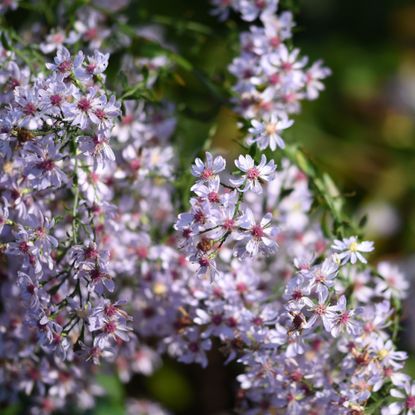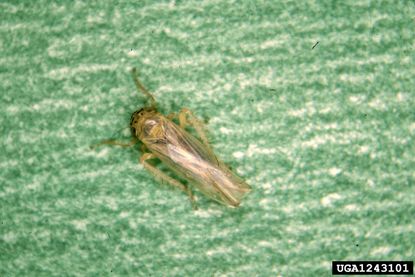Asters
With hundreds of varieties to choose from, asters come in a rainbow of colors, shapes and sizes. They love USDA zones 4-8, but will grow happily in containers where they can get plenty of sunshine. Read on to decide what kind is best for you and how to care for them.
-
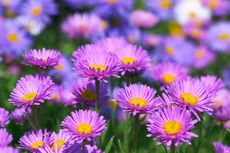
How To Grow Beautiful Asters in Your Garden
Sweet, old-fashioned aster flowers will fill your garden spaces with color in late summer and fall, and their small daisy-like flowers are a perfect addition for beauty and pollinators.
By Becca Badgett
-
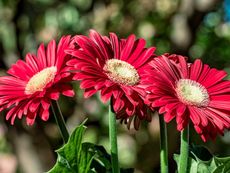
Asteraceae: The Largest Plant Family On Earth
If you're growing flowers, there's a good chance you have at least one member of the Asteraceae family in your garden. Click for more.
By Mary Ellen Ellis
-
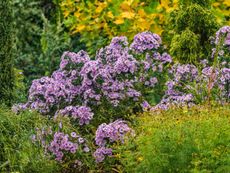
Where To Plant Asters So They’ll Thrive For Years
What is the best place to plant asters for years of blooms? Click here and find out just where to plant asters.
By Tonya Barnett
-
Treating Asters With Leaf Spots – Treating Leaf Spots On Aster Plants
Asters won’t need much care or maintenance, but there are a few diseases that may trouble them. If you see spots on aster leaves, you may have a fungal disease growing in your garden. Learn how to prevent leaf spot and how to deal with it in this article.
By Mary Ellen Ellis
-
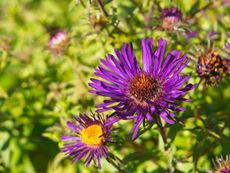
Purple Dome Aster Info – How To Grow Purple Dome New England Asters
Purple dome aster is a purple, daisy-like flower that adds cheer to any garden or perennial bed. Read on for more.
By Mary Ellen Ellis
-
What Is Aster Foot Rot: Treating Asters With Foot Rot Disease
Aster foot rot is a nasty, soil-borne fungal disease enters asters through the taproot and spreads through the roots, moving upwards. Once established, treating aster foot rot is difficult; however, the disease can be prevented. Learn more about asters with foot rot here.
By Mary H. Dyer
-
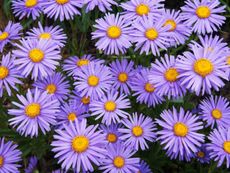
Powdery Mildew Of Asters: Treating An Aster With Powdery Mildew
Powdery mildew on aster plants will not necessarily harm your flowers, but it doesn't look very nice. This fungal infection feeds on asters and other plants, but it can be prevented and treated. This article will help with that.
By Mary Ellen Ellis
-
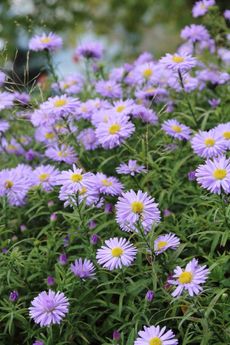
When Do Asters Flower: What To Do If Aster Plants Don’t Bloom
Asters brighten the garden with their bright, happy blooms. But what can you do when there just aren't any fireworks anymore? Click on the following article to learn all about getting your asters back on track, and how to deal with an aster with no flowers.
By Kristi Waterworth
-
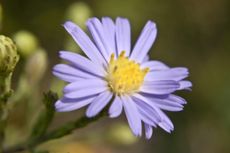
What Is Sky-Blue Aster – How To Grow Sky-Blue Aster Plants
Sky Blue asters are North American natives that produce brilliant azure-blue, daisy-like flowers from late summer until the first serious frost. Wondering about growing a Sky Blue aster in your garden? Click here to learn the basics.
By Mary H. Dyer
-

Aster Plant Uses – Learn About The Edibility Of Aster Flowers
Asters are prized primarily for their late-season beauty in a landscape that has begun to wither and dieback prior to winter, but there are other uses for aster plants. Click on the article that follows to learn more about the edibility of aster flowers.
By Amy Grant
-
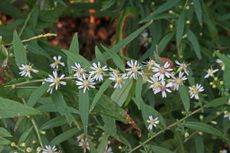
Calico Aster Care – How To Grow Calico Asters In The Garden
With the recent decline in bee numbers and other beneficial insects, planting nectar-rich flowers is one way to ensure a brighter future for them. One such pollinator plant, calico aster, is an ideal candidate for attracting bees to your flower garden. Learn more here.
By Tonya Barnett
-
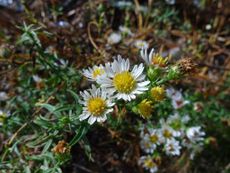
Bushy Aster Care – Learn How To Grow Bushy Aster Plants
One you might want to consider is bushy aster for pretty, daisy-like flowers. If you don't know much about bushy aster plants, click this article for additional information. We'll also provide some tips on how to grow bushy aster in your own garden.
By Teo Spengler
-
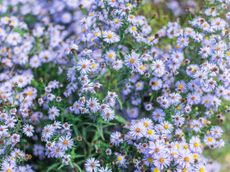
Blue Aster Varieties – Choosing And Planting Asters That Are Blue
Asters are popular in perennial flower beds because they produce gorgeous flowers later in the season to keep the garden blooming well into fall. They are also great because they come in so many different colors. Learn about asters that are blue in this article.
By Mary Ellen Ellis
-
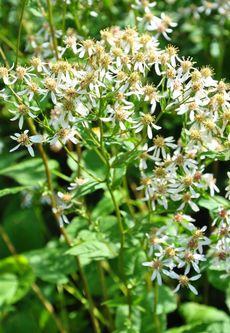
Should I Plant Aster – Tips On Controlling Aster Plants In Gardens
Most asters are welcome in the garden, but some species are pests that spread aggressively in certain conditions. Click on the article that follows for more information about troublesome aster plants in gardens and how to manage them.
By Mary H. Dyer
-
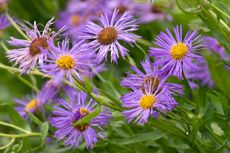
Powdery Mildew Aster Control – How To Get Rid Of Powdery Mildew On Asters
While asters are hardy, easy to grow and are, indeed, a welcome sight in the early fall, they do have their share of problems. One such issue, powdery mildew on asters, causes damage to the plant and rendering it unsightly. Learn how to treat it in this article.
By Amy Grant
-
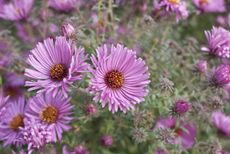
Aster Plant Varieties – Learn About Different Types Of Aster
Aster plant varieties offer variety of blooms, colors and sizes. How many kinds of aster are there? There are many different types of Aster from which to choose, most of which thrive in temperate to cool season climates. Click this article to learn more about them.
By Bonnie L. Grant
-
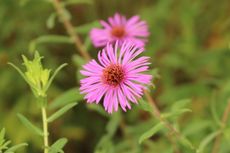
New York Aster Information – Tips For Growing Michaelmas Daisies
Growing Michaelmas daisies in the garden is a real joy. These perennials provide fall color after the blooms of summer are already gone. Also known as New York aster, these pretty flowers are a great addition to any perennial bed. Learn more about them here.
By Mary Ellen Ellis
